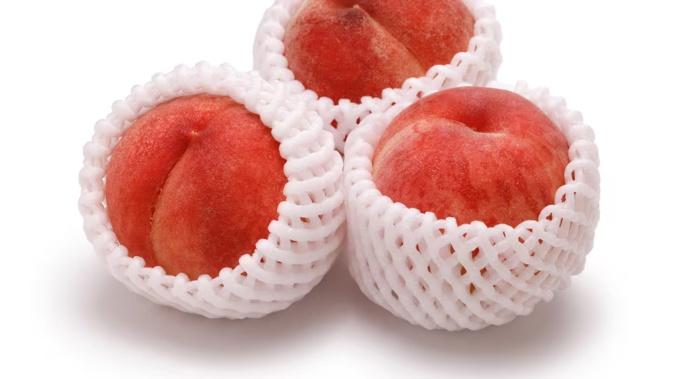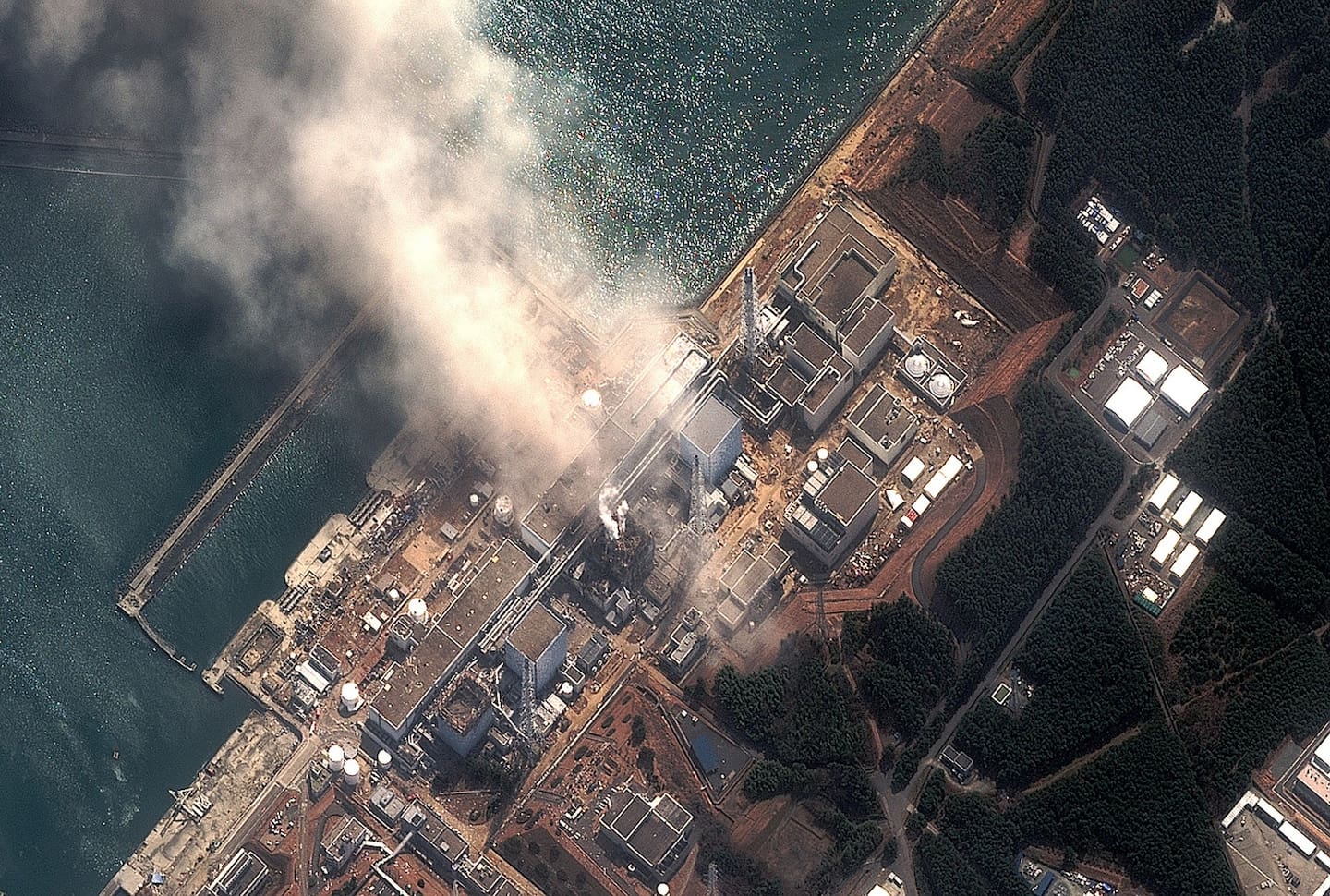
Peaches grown in Fukushima, Japan, which experienced a nuclear catastrophe 13 years ago, are now sold at one of the world’s most famous luxury department stores.
On Saturday, Harrods in Knightsbridge, London, started selling the white peaches for £27 ($57) each, or a box of three for £80 ($170) in a bid by a Japanese power company to lift the Fukushima region’s image after suffering several disasters, reported Japan Today.
According to Japanese media, the PR efforts by the Tokyo Electric Power Company (Tepco) which operated the Fukushima plant that suffered a nuclear accident in 2011 – the worst of its kind since Chernobyl in 1986 – are to combat the stigma that remains for many about the area.
Harrod's is selling the Fukushima peaches. Photo / Getty Images
Amid concerns over radioactive food, Harrods celebrated the occasion with a tasting event in collaboration with the Japan External Trade Organisation and the Fukushima Prefectural Association in London – marking the first time the peaches have been sold in a British shop.
The Daily Telegraph reported that the peaches, known for their exceptional sweetness and a slight tang, are placed between a £150 ($319) melon and £60 ($127) pack of grapes.
Speaking to Japan Today, a Tepco spokesperson said: “We would like to continue to convey the appeal and tastiness of Fukushima Prefecture’s produce to the world.”
On the taste itself, one woman, who was not identified, told the news outlet that they were “tastier” than the peaches she usually ate.
While it is unclear why the fruit carries such a hefty price tag at the luxury shop, the cultural significance and cultivation process may offer some clues. Before the nuclear accident, peaches from Fukushima were prized for being the sweetest – and some of the most expensive – in the world. Grown in tightly controlled conditions at the prefectures by dedicated farmers, who ensure they are immaculate inside and out – they are auctioned off at wholesale markets in Japan.

A meltdown occurred at the Fukushima Daiichi nuclear power plant in 2011. Photo / Getty Images
2011 was Japan’s year of triple disasters. It started with a magnitude 9 earthquake that unleashed a powerful tsunami with 40m-high waves. It set off a meltdown at the Fukushima Daiichi nuclear power plant, leading to evacuations of some 150,000 people. Around 33,200 homes in the area experienced power outages amid freezing temperatures overnight.
Hokuriku Power, another operator of the plant, said at the time that there was some minor damage but nothing that could result in radiation leaks, reported the Associated Press.
Take your Radio, Podcasts and Music with you









